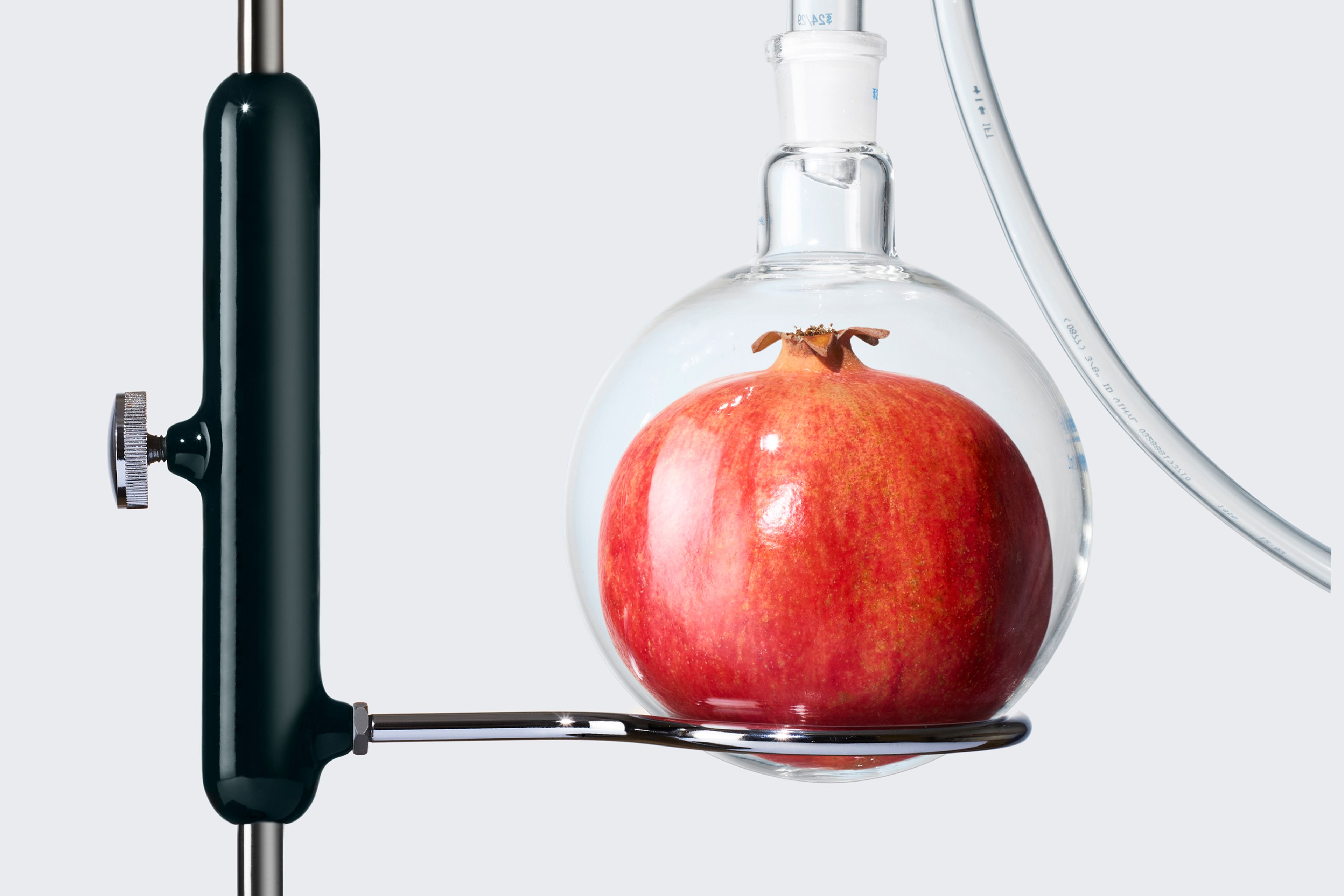Plant based nutrition & gut health
Urolithin A is a naturally occurring metabolite of foods like pomegranates. Few people can get enough from diet alone.

Plants occasionally have an interest in our health, sometimes with the help of bacteria. When it comes to many fruits, nuts, and berries, the plants chose us.
Bright colors, sought-after sweetness, and fatty content attract birds, rodents, bears, humans, and many other animals. Well-protected seeds often pass through digestive tracts and end up disseminated and ready to hatch – coated with a free layer of fertilizer! Nuts are typically stored in the ground by small mammals for the colder months or accidentally dropped by birds. As a result, countless trees owe their existence to a forgetful squirrel or an awkward raven.
Berries have interests in our health....and so do bacteria
Many fruit-bearing plants go one step further in their strategy. They don’t just attract seed disseminators: they keep them healthy. Certain fruits, nuts, and berries are known to provide fairly large quantities of antioxidants and vitamins. Amongst these, the pomegranate is perhaps one of the first cultivated fruits in human history, known to have many health-promoting and anti-aging benefits.
These fruits also contain other molecules which did not catch our attention until recently. Called ellagitannins, these compounds remained unnoticed for a good reason: they have no obvious health benefit.
When we absorb ellagitannins from pomegranates, walnuts, and blackberries, bacteria in our digestive tract break down these big molecules into smaller ones, which we can assimilate and send into our bloodstream. Among these by-product metabolites, we find Urolithin A.
Most gut bacteria have a selfish interest in helping us. First, a healthy host is nothing less than a safe home. Second, vigorous individuals have greater chances of reproducing and transmitting their bacteria to their offspring.[1] By making us healthier, gut bacteria give themselves an evolutionary edge. This is why science discovers more and more of their positive effects[2], from fine-tuning our immune system to providing several beneficial molecules – including Urolithin A. However, not everyone has the right gut bacteria to transform ellagitannins and generate Urolithin A.[3]
It matters because Urolithin A has been proven to enhance cellular and mitochondrial health in pre-clinical studies. Did you know that mitochondria started off as independent bacteria, too? During evolution, these bacteria developed a symbiotic relationship with host cells leading to their becoming integrated with the host cells’ machinery –the so-called “microbiome-mitochondrial” axis of health.
As a result of Urolithin A’s role, nematode worms live longer, and rodents show increased endurance.[4] Human trials are on their way, but we already know that Urolithin A triggers our cellular activity in a comparable manner.[5]
The beauty of it is that none of it would work without a million years of co-evolution between plants, animals, and bacteria. It is now up to us to take this process, fine-tuned by evolution, and use it to keep our cells, and muscles, healthy.
Authors

Written by
Editorial Staff
References
- ↑
Pannaraj, P. S. et al. Association Between Breast Milk Bacterial Communities and Establishment and Development of the Infant Gut Microbiome. JAMA Pediatr., 171, 647–654 (2017).
- ↑
Nicholson, J. K. et al. Host-gut microbiota metabolic interactions. Science, 336, 1262–1267 (2012).
- ↑
González-Barrio, et al. Bioavailability of Anthocyanins and Ellagitannins Following Consumption of Raspberries by Healthy Humans and Subjects with an Ileostomy. J. of Ag. and Food Chem., 58(7), 3933–3939 (2010).
- ↑
Ryu, D. et al. Urolithin A induces mitophagy and prolongs lifespan in C. elegans and increases muscle function in rodents. Nat. Med., 22, 879–888 (2016).
- ↑
Singh, A. et al. Orally administered Urolithin A is safe and modulates muscle and mitochondrial biomarkers in elderly. Innovation in Aging, 1, 1223–1224 (2017).

•
Nutrition•
Studies•
New Study: Mitopure Improves Muscle Health in Athletes

•
Nutrition•
Studies•







